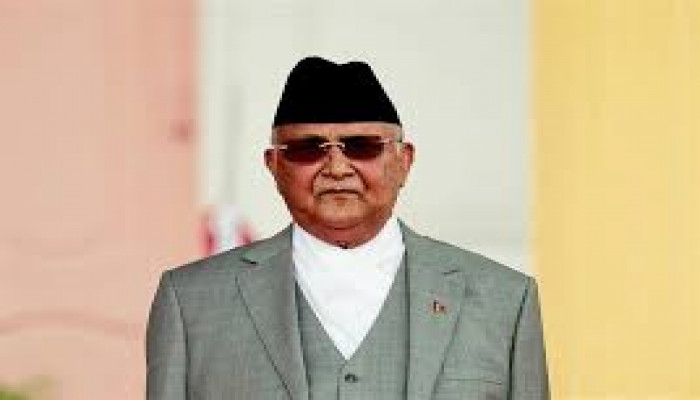Nepal Prime Minister KP Sharma Oli wins no confidence motion
- In Reports
- 08:21 PM, Jul 22, 2024
- Myind Staff
Prime Minister K P Sharma Oli of Nepal achieved a significant victory on July 21st when he secured a Vote of Confidence in Parliament with a decisive two-thirds majority. Out of the 263 members of the House of Representatives who participated in the vote, Oli received 188 votes in favour of the motion, while 74 votes were cast against him. Only one member abstained from voting.
Having surpassed the threshold of 138 votes required for the floor test, Prime Minister Oli, aged 72, emphasised his commitment to ushering in a "new chapter" in Nepali politics. This success came nearly a week after Oli was sworn in to lead a coalition government in Nepal, a country known for its political volatility and frequent changes in leadership.
After the successful vote of confidence, Speaker Devraj Ghimire declared, "I declare that the motion of the vote of confidence tabled by Prime Minister Oli has been endorsed with a majority." Prime Minister K P Sharma Oli, addressing the parliament, emphasised the need to build a modern, systematic, and democratic society in Nepal. He clarified that this vision does not entail anarchism, distinguishing between democracy and chaos. Oli stressed the importance of disciplined democracy and comprehensive democratic practices across all sectors, not merely as a theoretical concept but as practical implementation.
Oli acknowledged the efforts of the Nepali Congress and the Communist Party of Nepal (Unified Marxist–Leninist) CPN-UML in advancing this agenda and expressed optimism that other political parties would also align with this vision. He called for the beginning of a new era in Nepali politics. With Oli securing more than a two-thirds majority in the vote, the new coalition government is anticipated to initiate amendments to the Constitution, marking a significant step towards advancing their agenda for reform and governance in Nepal.
According to Nepal's Constitution, Prime Minister K P Sharma Oli was required to secure a vote of confidence from Parliament within 30 days of his appointment. He was sworn in on July 22nd for a fourth term as Nepal's Prime Minister.
During the process of seeking a vote of confidence, Oli disclosed the contents of a seven-point agreement that had been reached between the Nepali Congress and the Communist Party of Nepal (Unified Marxist–Leninist) CPN-UML earlier in the month. This agreement, as per Oli, reflects collaborative efforts between the two major parties to address critical issues facing the country.
Oli emphasized that while the Nepali Congress and CPN-UML may compete on ideological grounds, they also have instances of cooperation. He described the agreement as a continuation of this collaborative spirit, aimed at safeguarding national interests, combating corruption, enhancing governance, accelerating development initiatives, and ensuring political stability as desired by the people. Asserting a strong stance against corruption, Oli affirmed that his government would not tolerate corrupt practices and vowed to pursue policies aimed at promoting good governance confidently.
Prime Minister Oli responded to lawmakers' concerns by affirming his commitment to integrity, stating, "I have never engaged in corruption and will not tolerate it in my administration." He defended the planned constitutional amendments as crucial for enhancing democracy, ensuring good governance, and accelerating development.
Oli also refuted allegations of land embezzlement from his previous term. Lawmakers from ruling parties, including Nepali Congress and CPN-UML, supported Oli's Vote of Confidence motion, while opposition parties like CPN-Maoist Centre and others voted against him.
K P Sharma Oli was sworn in as Nepal's prime minister on 22nd July, along with 21 other Cabinet members. However, Nepal's Supreme Court, responding to a petition filed by three advocates, referred a challenge to Oli's appointment to a constitutional bench for a thorough constitutional interpretation.
The petitioners argue that Oli's appointment violates constitutional provisions and have requested a mandamus order to invalidate it. Oli, chairman of the CPN-UML, Nepal's largest communist party, was appointed prime minister by President Ram Chandra Paudel to lead a coalition government with the Nepali Congress (NC) and smaller parties.
Oli took over from Pushpa Kamal Dahal 'Prachanda,' who lost a vote of confidence in the House of Representatives on July 12. The new coalition government faces the significant task of restoring political stability in Nepal, which has experienced frequent political upheavals with 14 governments in the last 16 years since adopting the Republican system.
Image Source: Tribune India







Comments